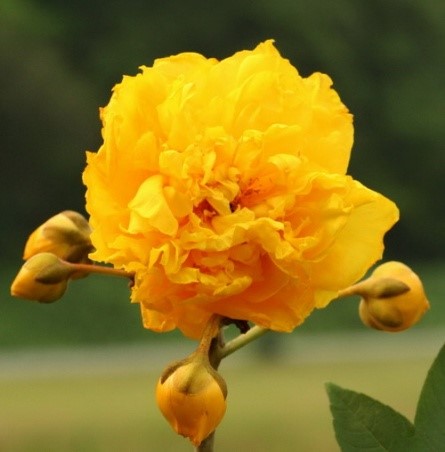

The Report on National Mental Health Development in China (2017–2018) revealed that 11%–15% of the Chinese population have mild to moderate mental health conditions and 2%–3% have moderate to serious mental health conditions. A growing body of empirical evidence in developed countries has revealed the benefits of nature exposure to human mental health through mitigating environmental stressors such as air pollution and noise, restoring attention, reducing stress, providing a pleasant venue for social interactions, and fostering physical activities. However, there are only few empirical evidence available concerning Chinese cities.
Researcher from South China Botanical Garden of Chinese Academy of Sciences, Dr. LIU Hongxiao, examined nature’s protective effects on multiple aspects of mental health relying on two waves of cross-sectional surveys in Guangzhou and investigated 1,274 respondents' depression risk and four aspects of subjective well-being (SWB) including life satisfaction, worthwhileness, happy yesterday, and anxious yesterday.
Nature exposure provides protective but distinct effects on specific aspect of mental health. Achieving SWB across all its components needs access to both park and blue space. One-hectare increase in accessible water is associated with an improvement up to 0.45% anxious yesterday scores indicating blue space a potential public health resource. There is a clear gender- and socioeconomic differences: nearby nature has stronger protective effects for female, lower educated and low-to-median income population groups than their counterpart. Although the heterogeneities need to be confirmed in other urban settings, this research suggest that effective actions need to consider gender- and socioeconomic differences to target potential beneficiaries and maximize the returns of investments and policy interventions.
For further reading, please refer to: https://doi.org/10.1016/j.jclepro.2021.127100.

